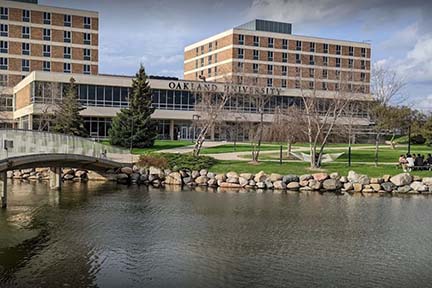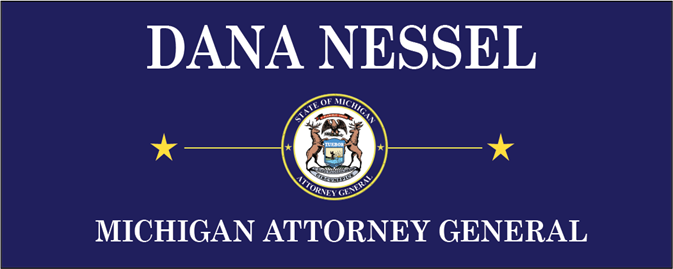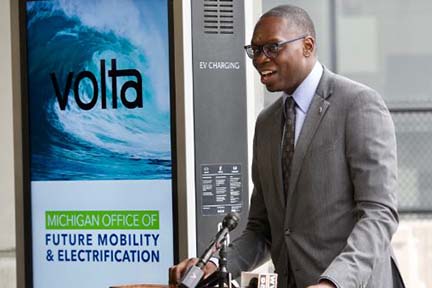
FOR IMMEDIATE RELEASE
August 23, 2022
Gov. Whitmer Announces Business and Community Investments that Will Create and Retain 672 Jobs
- Dana Thermal Products establishing new operations in Auburn Hills, creating 200 high-wage jobs
- Neogen constructing new facility in downtown Lansing, investing $71.5 million
- Community revitalization project in Detroit will bring new vibrancy and density to Brush Park neighborhood
LANSING, Mich. – Today, Governor Gretchen Whitmer joined the Michigan Economic Development Corporation (MEDC) in announcing Michigan Strategic Fund (MSF) approval of a range of projects, including support for business expansion projects in Auburn Hills and Lansing, a community revitalization project in Detroit, continued site readiness efforts and other actions that will continue to strengthen Michigan’s economy. In total, the projects approved today during MSF’s board meeting are expected to generate more than $153 million in investment around the state and create or retain 672 jobs for Michiganders.
“Today’s Michigan Strategic Fund approvals will create and retain 672 good-paying jobs and invest $153 million across Auburn Hills, Lansing, and Detroit,” said Governor Whitmer. “These projects will build on our manufacturing heritage and advance our mobility and electrification leadership. Together, we will help us continue to drive growth in Michigan by funding economic development projects, investing in our communities, creating jobs for our residents, and advancing initiatives that build long-term opportunity throughout the state. I will work with anyone to keep getting things done and grow our economy.”
Dana Thermal Products establishing new operations in Auburn Hills, investing $54.2 million
Dana Thermal Products, LLC is a subsidiary of Dana Incorporated, a global leader in thermal management technologies for the mobility industry. The company’s parent employs more than 40,000 people in 31 countries.
Dana provides various thermal management technologies including battery cooling plates, cold plates and power electronics cooling to global automakers. The company anticipates that one of its largest opportunities for growth is within the electrification market and is investing to position itself as a leader in EV technologies as core customers and markets are making the shift.
Dana plans to lease a facility in the city of Auburn Hills to support a new battery cooling plate manufacturing operation. The project is expected to generate a total capital investment of $54.2 million and create 200 jobs, supported by a $2.5 million Michigan Business Development Program performance-based grant. Michigan was chosen for the project over competing sites in the Southeast U.S. and Canada.
“The $44 million investment in electric vehicle battery production is outstanding news for the highly skilled workers who can fill those new jobs,” said Oakland County Executive David Coulter. “It’s also a boost for the advanced manufacturing reputation for both Michigan and Oakland County.”
The project contributes to the MEDC’s ongoing efforts to strengthen Michigan’s leadership in automotive manufacturing and builds on the state’s work to position itself as the global leader in the future of mobility and vehicle electrification. Dana chose Michigan for the project because of the manufacturing and engineering talent as well as the proximity to automotive customers.
“We are honored that Dana Thermal Products, LLC has chosen Auburn Hills for their next strategic investment. Their expertise and innovation will complement and enhance our existing world-class business community,” said Auburn Hills Mayor Kevin McDaniel. “This commitment by Dana Thermal Products, LLC strengthens Auburn Hills’ reputation as being a leader in the future of electrification and mobility. We appreciate their confidence and look forward to partnering with them to provide an environment where their business can grow and thrive.”
The city of Auburn Hills plans to offer staff time and assistance in support of the project. For information on careers with Dana, visit https://www.dana.com/careers/.
Food and animal safety solutions provider Neogen expanding in downtown Lansing, investing $71.5 million
Neogen Corporation, founded in Lansing in 1982, is consolidating existing operations and creating a state-of-the-art manufacturing and R&D facility in Lansing. Neogen develops and markets products dedicated to food and animal safety, employing nearly 1,800 people worldwide with more than 600 in Lansing.
The Neogen Expansion Brownfield Redevelopment Project will include the construction of a new three-story manufacturing and research building on a vacant a parcel of land in downtown Lansing and is expected to generate a total capital investment of $71.5 million and create 77 new jobs as well as retain 350 jobs. The project is supported by a $324,000 Michigan Business Development Program performance-based grant. Michigan was chosen for the project over a competing site in Kentucky.
“Neogen is a proud member of the Lansing community, and we are pleased to call Lansing our corporate headquarters. From our earliest days as a technology developed at Michigan State University to the present, the Greater Lansing community has supported us, and we are proud to be a part of such a diverse and thriving community,” said Neogen President and CEO John Adent. “I want to thank Lansing Mayor Andy Schor, the City of Lansing, the Lansing City Council, and the Greater Lansing area for continuing to support Neogen, and we are excited to continue growing together. I also want to thank the Lansing Economic Development Corporation, the Lansing Economic Area Partnership, the Michigan Economic Development Corporation, and the Michigan Strategic Fund for all of their help and collaboration as we work through this project.”
The City of Lansing Brownfield Redevelopment Authority today received MSF approval of $1,576,751 in state tax capture for the reimbursement of eligible brownfield activities at the site. Neogen Properties IX, LLC is the single purpose development entity created by Neogen to undertake the project.
Neogen is committed to its employees and their career advancement by utilizing a combination of job banding, career ladders and succession planning. The company also provides a tuition reimbursement program and has established a quality technician apprentice program. The project will transform an underutilized property in downtown Lansing, dramatically improving the property’s appearance and bringing new economic activity to downtown Lansing. In addition, the project will bring 77 good jobs to Lansing residents in the life sciences, research and development, and professional services sectors.
“For the last year and a half, there’s been a great partnership between City of Lansing, LEAP, and the MEDC to put together a multi-tier incentive package to keep NEOGEN growing in the City of Lansing and the state,” said Bob Trezise, president and CEO of LEAP. “Additionally, we thank Sparrow Hospital for their critical partnership and most importantly thank NEOGEN for choosing Lansing and the state of Michigan for this continued effort to successfully diversify our local and state economy.”
The city of Lansing is supporting the project through approval of the local tax capture valued at $3,267,339, and also plans to provide staff or economic assistance in support of the project. The city of Lansing is certified with MEDC’s Redevelopment Ready Communities program. Individuals interested in careers with Neogen should visit https://www.neogen.com/careers/.
Community revitalization project in Detroit will add vibrancy, density to Brush Park neighborhood
The Coda Brush Park project includes the rehabilitation of an existing single-story building and construction of additions that will result in a five-story, mixed-use development in the Brush Park neighborhood of Detroit. When complete, the project will include a ground-level restaurant and bar, a second-story office and three stories of for-sale condos and integrated parking.
The project is expected to generate a total capital investment of $27.9 million and create 45 full-time equivalent jobs, and will help meet demand for restaurant, housing, office and parking space in the neighborhood. In addition, it will bring long-vacant property back to productive use, add vibrancy and density, and generate additional economic activity in the area.
The City of Detroit Brownfield Redevelopment Authority today received MSF approval of $1,218,829 in state tax capture for the reimbursement of eligible brownfield activities at the site. The city of Detroit is supporting the project through the approval of the local tax capture valued at $3.5 million. The city of Detroit is engaged with MEDC’s RRC program.
“The Detroit Brownfield Redevelopment Authority supports this exciting, new mixed-use project for CODA Brush Park that will add jobs, housing and vibrancy to this historic community,” said Brian Vosburg, Director of Brownfield Redevelopment at the Detroit Economic Growth Corporation. “We’re also pleased there will be elements of the original structure incorporated into the new development, reflective of the community’s rich history.”
“We’re grateful for the support of the DEGC, Detroit City Council, MEDC and the MSF Board and staff,” said CODA Detroit Developer Michael VanOverbeke. “Without their assistance, this project would not have been able to go forward. We all feel that this development will be a great addition to the Brush Park neighborhood.”
Additional funding approved for Michigan Build Ready Sites Program
MSF today approved $5 million in funds from the Michigan Business Development Program to be transferred to the Michigan Build Ready Sites Program. The program is designed to assist with the development and/or enhancement of sites to make the state investment-ready and competitive for business attraction and expansion projects.
The program provides financial or technical support to fund activities that will increase Michigan’s inventory of development-ready industrial sites. Activities could include site development studies or site material development, site implementation or land assembly activities, and more.
The program supports MEDC’s strategic focus of continuing to hone Michigan’s competitive advantage and be prepared to attract companies in key focus industries to locate and grow in Michigan. As MEDC courts companies to grow or locate in Michigan, there is a need for the development and/or enhancement of industrial sites to make them build-ready and competitive for site selection projects.
“Michigan is aggressively pursuing site readiness in a range of locations and sizes, including strategic mega-sites considered to be 1,000+ acres, to grow an inventory of market responsive sites to position Michigan as the state of choice of site selectors,” said MEDC Executive Vice President, Chief Real Estate and Global Attraction Officer, Terri Fitzpatrick. “MEDC is experiencing a never-before-seen level of RFPs and inquiries for sites here in the state. This funding will advance sites to ready them for investment in Michigan.”
The Michigan Strategic Fund also approved the following:
- Bedrock Transformational Brownfield Plan amendments – MSF approval of modifications to Bedrock’s original Transformational Brownfield Plan, approved in May 2018, to reflect updated details to project, new completion dates and changes to the TBP law. The amendments do not increase company’s incentive value or change their investment amount.
- Design for Michigan Manufacturing Program at the Centrepolis Accelerator at Lawrence Tech University – Approval of $1.5 million to support the economic development program at LTU designed to develop and launch more products made in Michigan.
- Funding allocation for the Michigan Translational Research and Commercialization Advanced Materials Hub – MSF approval of additional funding for the Michigan Technological University MTRAC Advanced Materials Innovation Hub. The hub focuses on commercializing technologies related to advanced applied material, systems, technologies or devices.
- Funding tourism and business marketing efforts – MSF approval on the allocation of FY23 appropriated funding to MEDC’s tourism and business marketing initiatives to promote Michigan as a world-class business and travel destination. The MSF Board approved $15 million in appropriated American Rescue Plan Act federal funds to the existing contract with MMGY Global for travel marketing and advertising initiatives that promote Michigan as a premier four-season destination. The MSF Board also approved $5,782,000 to the existing contract with Lambert/9th Wonder for business marketing and advertising activities that attract, retain and grow businesses that deliver economic opportunity to Michigan.
“The projects approved today build on our statewide leadership in EV manufacturing, bring good jobs to Michigan residents, support vibrant communities, help increase growth opportunities for businesses ranging from start-ups to established companies, and better prepare our state to compete for business attraction opportunities,” said Michigan Economic Development Corporation CEO and Michigan Strategic Fund President and Chair Quentin Messer Jr. “We are grateful to Governor Whitmer, legislators, and local officials for their continued support for our programs, and we appreciate the hard work of the Michigan Strategic Fund board. Today’s MSF actions demonstrate our ongoing commitment to ensuring our work is making an impact no matter where our friends and neighbors reside across Michigan.”
|















